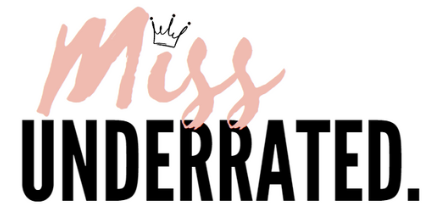Why do I feel so comfortable breaking promises to myself?
Whether it’s getting up at a certain time, sticking to a budget, going to bed earlier, or maintaining boundaries—I’ve noticed that I bend the rules for myself far too often. And it’s not just about discipline. It’s about what I’ve trained myself to expect from me: leniency, softness, a free pass.
For so long, I’ve leaned into my deep understanding of people instead of just taking them at face value. I’m intuitive—good at reading between the lines, noticing repeated behaviors, picking up on shifts in tone and body language. I use that strength to make people feel safe, seen, and understood. It’s like a superpower. A love language, even. The kind that doesn’t need to be said aloud to be felt.
But here’s the catch: when I rely on that skill too much, I rob others of the opportunity to communicate clearly. If my dad says, “Don’t make a big deal out of my birthday,” and I still throw a surprise party because I know he’d be hurt if we didn’t, am I honoring his words or prioritizing my own interpretation? If I always take the lead, always anticipate, always read between the lines—why would the other person ever learn to meet me halfway? To be direct? To initiate difficult conversations? They wouldn’t. Until one day, I don’t read the cues, and both of us end up disappointed: them, for not being understood, and me, for not being told.
Frankly, it’s exhausting.
I’m starting to realize I need to practice taking people at their word. Not with suspicion or detachment, but with respect. That doesn’t mean I stop being thoughtful. It means I stop being a mind-reader. It means creating relationships where people can speak their truth and trust that I’ll hear them. Not decode them.
This might be a defense mechanism. A way to prove I’m worthy of love, friendship, or inclusion—by anticipating needs, preventing conflict, and staying small. Being the reliable one in the corner. Seen, helpful, quiet.
Honestly, the dynamic starts to feel familiar. Like the servant who smiles, stays agreeable, and keeps the peace just to stay in good standing. Friendly, but one-sided. Affirming, but not reciprocal. That servant gets favor, but not freedom.
And maybe part of that is because I’ve never fully learned how to trust people without questioning their motives. It’s easier to over-function and analyze than to simply ask and believe. I could blame past friendships, and that wouldn’t be wrong. But healing means reminding myself that not everyone is them. And they shouldn’t have to pay for someone else’s damage.
All of my recent revelations circle back to one thing: I don’t like confronting problems. I’d rather ignore them, distract myself, let them fizzle out until they turn into a “someday” issue. I’m a master of emotional suppression. I process things alone, in silence, until I convince myself I’m over it. And the other person? Often never even knew there was an issue to begin with.
It’s not fair—to me or them.
I’ve got this strange paradox where I’ll devalue myself to avoid conflict, but also expect others to intuit what I need without me having to say it. That’s not just unrealistic—it’s unfair. Growing up with parents who could predict my needs and being in one-sided friendships where no one cared to ask has made it hard for me to communicate clearly. I’ve been handicapped from saying, “I feel X when you Y. I need Z.”
So why do I keep breaking promises to myself? I don’t fully know yet. But I suspect it’s tied to this superhero complex I’ve created: the go-to person, the fix-it friend, the golden child. But being everything to everyone means someone always gets left behind—and it’s usually me.
I let myself off the hook because I understand myself. I give myself a pass because I know why I dropped the ball. I don’t enforce accountability because the pain of disappointing myself has become so normalized that it doesn’t motivate me anymore.
The first step, I think, is to redefine what it means to have a relationship with myself—one that’s centered around me. What and who is taking up space in my life? Why? What’s my purpose, and what does fulfillment look like from the inside out?
I need to name my values and set non-negotiable boundaries based on them. Then ask: Have I communicated these to the people in my life? Are they respected? What will I do if they’re not?
What does happiness look like without performance? Without approval? What would it mean to only show up for myself and still feel whole?
Then comes the promises: Are the ones I’m making even reasonable? Are they rooted in my growth, or in someone else’s aesthetic? Am I truly ready to trade short-term comfort for long-term joy? What’s grace versus excuse? And do I really know the difference?
I don’t have all the answers yet. But I’m starting with better questions.


Leave a Reply